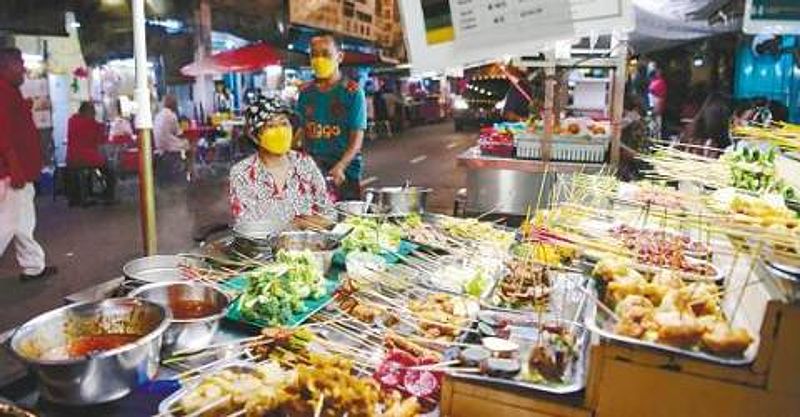Explore the potential of gastrodiplomacy in Malaysia's tourism industry, showcasing the diverse gastronomic choices and cultural heritage that attract tourists and boost the economy.
Gastrodiplomacy: Elevating Malaysia's Tourism Industry with Culinary Delights
Gastrodiplomacy, a key strategy in Malaysia's tourism industry, holds immense potential for showcasing the country's diverse gastronomic choices and cultural heritage. With its rich culinary landscape and reputation as 'Asia's Food Paradise,' Malaysia is well-positioned to attract tourists and boost the economy through the strategic use of cuisine as a tool for communication between nations.
Malaysia's culinary scene thrives in bustling night markets, hawker stalls, and upscale fine dining establishments. From iconic national dishes like nasi lemak and roti canai to a fusion of Western and Peranakan cuisines, the country offers a tantalizing array of flavors that cater to every palate.
Gastrodiplomacy, coined by Paul Rockower, has been successfully employed by countries like South Korea to promote their cuisine and culture globally. By doubling the number of Korean restaurants abroad, South Korea has not only expanded its market reach but also emerged as a top travel destination for younger generations.
Showcasing Malaysia's Gastronomic Heritage and Strengthening Diplomatic Connections
Gastrodiplomacy serves as a powerful instrument for advancing national interests and nurturing international relationships. It allows countries to showcase their distinctive gastronomic heritage and specialties, differentiating themselves in the global arena. Japan's sushi, Korea's kimchi, and Thailand's tom yum are prime examples of how countries reinforce their brands through culinary diplomacy.
For Malaysia, its diverse gastronomic choices have become a significant driver of its tourism sector. In a survey conducted by the Asean-Japan Centre, 'scenery and atmosphere,' 'natural scenery,' and 'food ingredients and cuisine' were among the top reasons for choosing Malaysia as a travel destination. The government aims to attract 27 million tourists in 2024, revitalizing the tourism industry and boosting the national economy.
Additionally, gastrodiplomacy enables diasporic groups to spread cultural customs globally, promoting cultural identity and strengthening diplomatic connections. Malaysia's halal economy, positioned as one of the biggest halal hubs globally, presents a formidable opportunity to attract Muslim tourists, further highlighting the potential of gastrodiplomacy in the country.
Challenges and Solutions for Malaysia's Gastronomy Industry
Despite the allure of Malaysian gastronomy, several challenges hinder the success of the industry. One significant challenge is the lack of stringent enforcement of hygiene and food safety standards, leading to an increase in foodborne illnesses. The incidence rate of food poisoning has doubled within a year, indicating potential negligence among food handlers. Addressing these concerns and improving food safety measures is crucial to maintaining the reputation of Malaysia's gastronomy industry.
Furthermore, incidents of scamming foreign tourists have tarnished Malaysia's reputation and had a detrimental effect on the tourism industry. Implementing stricter regulations and enforcement to prevent scams and protect tourists will contribute to the overall success of the gastrodiplomacy strategy.
To enhance Malaysia's gastronomy industry, several policies are proposed. These include enforcing regulations on rising food prices, supporting small-scale producers, introducing a public-private marketing approach, expanding the reach of Malaysian goods worldwide, and providing support to Malaysian delegates, students, and youth councils.
Harnessing the Potential of Gastrodiplomacy for Malaysia's Culinary Future
The significance of gastronomy in shaping Malaysia's nation-branding should not be underestimated. Gastrodiplomacy offers a long-term strategy to elevate Malaysia's profile, attract tourists, and strengthen diplomatic connections. By implementing proactive measures and addressing the challenges faced, Malaysia can fully harness the potential of its gastronomy industry and emerge as a global culinary destination.
Gastrodiplomacy, with its ability to showcase Malaysia's diverse culinary heritage, has the power to entice travelers and boost the economy. With strategic policies and a commitment to food safety and quality, Malaysia can position itself as a top gastronomic destination, captivating the taste buds and hearts of visitors from around the world.

